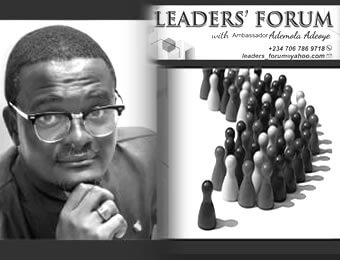First-class and superior coaches use many approaches in motivating their people, recognizing that different individuals are “turned on” by different things. What works with one partner may fail with another. Among the many separate and different things that may motivate a given individual—are money, external (marketplace) esteem, internal status and recognition, autonomy, appreciation, professional pride, team-work, an especially challenging assignment, rivalry, or any of a numerous list of “hot buttons.” One of the key talents of a good coach is the ability to recognize what motivates each specific individual, and deal with people on their own terms. Good coaches do not theorize about what should motivate people—instead, on a case-by-case basis they discover what does motivate each person.
A good coach recognizes that coaching is a continuous process and does not “save up” feedback and performance guidance for a once-a-year grand counseling session. Constructive feedback and suggestions are much more likely to be accepted (and hence be effective) if they are offered in small increments. Similarly, if counseling advice is given long before performance is to be assessed, and not when it directly leads to reward, then it is more likely to be seen as a source of help, not as an evaluation. When good coaches give feedback, it should not be just a critique, but should contain concrete action ideas for how to improve. Good coaches tell people not only what could be improved, but how. They are thus seen by those they coach as a source of creative ideas.
Effective practice leaders go out of their way to celebrate successes and triumphs. They make constant use of approval; visibility, recognition, and appreciation (Ask your partners how often they hear “well done” or “thank you.” Ask them whether they’d like to hear it more often.) However, to be effective, good coaches must also be demanding. When a good athlete successfully jumps over the high bar, what does a good coach do? Two essential things, first, celebrate the accomplishment, and then—raise the bar! (“Come on, you can do it!”) Coaches must be simultaneously chief cheerleader and chief critic—one without the other is insufficient. Part of the skill of coaching is, knowing how high to raise the bar, that is, judging for each individual, separately, what next challenge will be; stretching but achievable.
Good coaches know that getting people to change is difficult. People prefer to stick with what they know how to do (and the way they know how to do it) rather than risk exposing themselves by trying to learn something new. To overcome this, good coaches are adept at structuring small pilot projects designed to give the individual (and the group) the experience of an early success. They rarely ask people to make major changes, but instead say “Let’s just try this one small thing and see if it will work.” Good coaches give people the confidence to try new things, and help them accomplish more than they expected they could.
Good coaches build teams. Since more players will probably be more focused on their own personal performance, it is up to the coach to look out for the overall best interests of the group. The coach must identify opportunities for joint activities. The coach must stay alert for those situations when what is in the best interest of the player is not necessarily in the best interest of the team (e.g. who pursues a specific client, or how a particular matter is to be staffed), and then must negotiate with the individuals involved to do the “right” team thing. This inevitably involves the coach in trading favours. (“Help us out on this one, and I’ll do my best to look after you next time.”) Good coaches pay significant attention to how the group’s resources are being deployed, and whether or not all the bases are being covered.
Good coaches make frequent use of small group team meetings to discuss “What are we going to do about X?” drawing ideas out of the group. Good coaches are Socratic. They do not present conclusions (“I have thought about this and decided we’ve got to do X”). Instead, they reason together with their team. Good coaches know that their job is to get people to act differently and to try new things, and that means making people want to do it. This is accomplished, in large part, by leading them to discover the right answers for themselves.
As possible initiatives develop some degree of consensus, they ask for volunteers, or assign roles, to perform activities on behalf of the group. (“Susan, will you be prepared to do that for us? When do you think you can get it done?”) They also make sure that people do not sign up for things they can’t get done, because they do not want to set the precedent that action promises to the group can be neglected. Good coaches also work hard at developing joint tasks so that people get the experience of teamwork and joint responsibility.
Perhaps most important of all, good coaches follow up! They monitor the execution of plans. If things are getting off track, they don’t wait for the end of the fiscal year to see what was and what wasn’t done—they gently intervene while there’s still time to get things back on track.
Can you now clearly and undoubtedly see that we need good and high-quality leaders (coaches)? Also, the emerging generation of leaders in Nigeria and on this continent would need you to luminously coach them. This is why you’d need to learn what good leaders (coaches) do as briefly unveiled here and walk it out in shoe-leather. It is a new day for the continent of Africa!
See you where good coaches are found!







